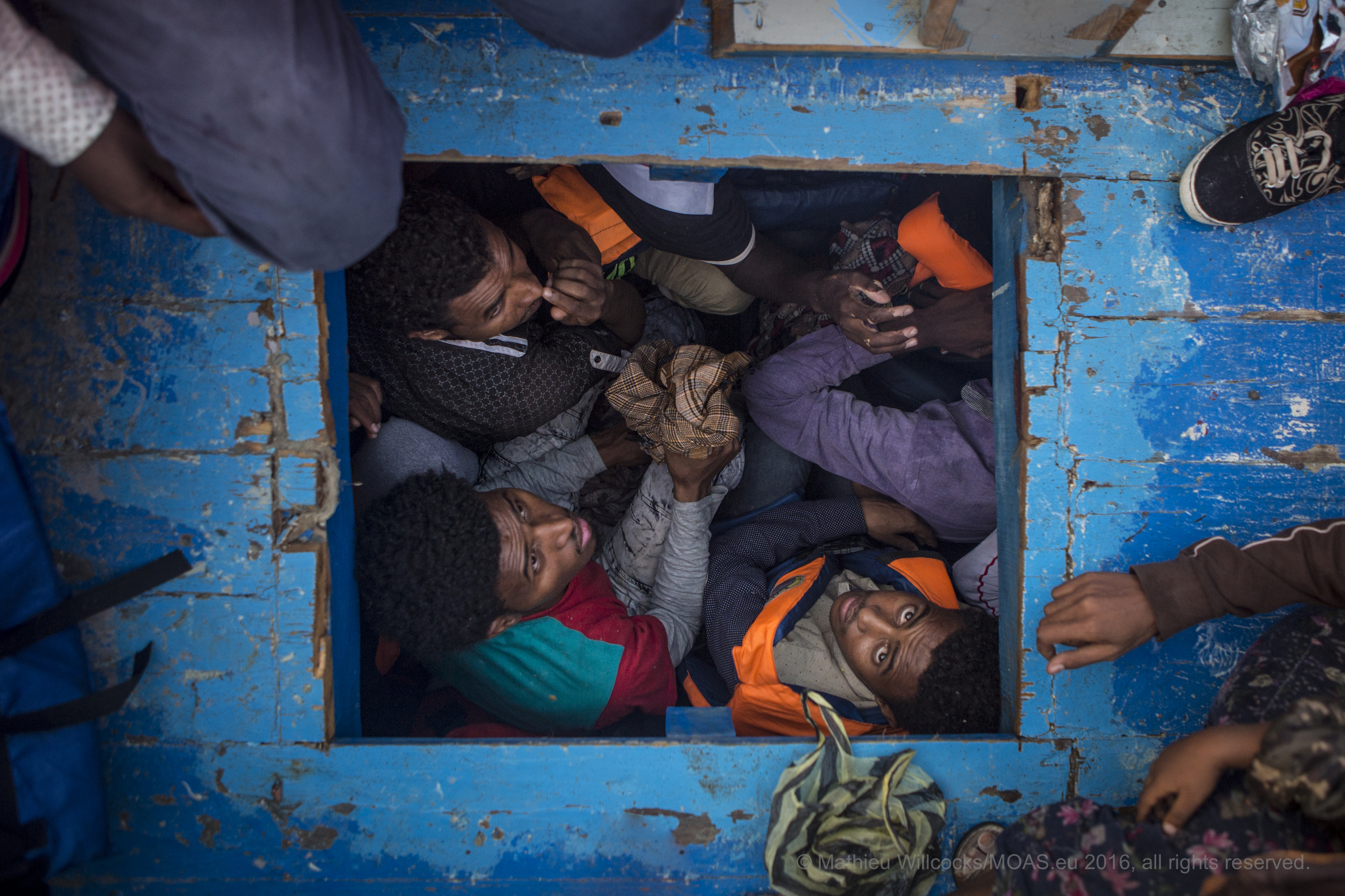
According to the UNHCR, the U.N. Refugee Agency, more than 65 million people in the world have been displaced from their homes, 21 million of whom are classified as refugees. From the safety of New York City, this global refugee crisis can begin to feel abstract. On March 30, Jenelle Eli, director of International Communications at the American Red Cross, humanized the statistics by telling FIT students about her experiences saving the lives of refugees stranded in the Mediterranean Sea.
The event was part of the biannual World Affairs Lecture Series, organized by Praveen Chaudhry, professor of Political Science, and sponsored by the Department of Social Sciences and the Presidential Scholars Program.
Last fall, Eli spent a month aboard the Responder, a search-and-rescue ship launched by the Red Cross and Migrant Offshore Aid Station. The ship was positioned off the coast of Libya, where dinghies packed with refugees float adrift with no hope of reaching Italy on their own. These people put their lives at risk in fleeing wars, oppressive regimes, sex slavery, and economic hardship. Many pay great sums to human traffickers to secure space on a boat, only to realize that the boat is much flimsier and the journey much longer than they anticipated. The Responder pulls them from the water, attends to urgent medical needs, and brings them to Italy, where they might find asylum in Europe or be sent back to their home country, depending on the severity of their circumstances.
“People get disaster fatigue—we can all get sick of the news,” Eli said. “But there are real people out there who need help. Keeping the conversation up is really important.”
She also encouraged students to help out, whether that means volunteering locally or abroad, or even designing clothing and housing to improve refugees’ lives.
Two Advertising and Marketing Communications students introduced Eli by sharing stories of their extended families in crisis. Nermeen Ileiwat is Palestinian- and Syrian-American, and five of her cousins fled to Europe to escape conscription in Syria. Fadwa Hussari is Syrian-American; two of her cousins drowned in the Mediterranean Sea.
“The topic is very important in the current climate,” Chaudhry said. “This lecture is one way we give our students cross-cultural and international exposure.”
